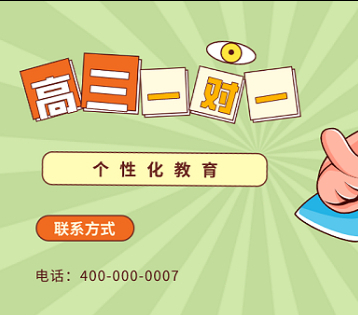金丽衢十二校2018学年高三第一次联考英语试题整理,有需要的学生可阅读本文进行测试!参考答案请点击:金丽衢十二校2018学年高三第一次联考英语试题参考答案。

本试卷分第I卷(选择题)和第II卷(非选择题)。第I卷1至7页,第II卷7至8
页。150分,考试用时120分钟。考试结束,将本试卷和答题卡一并交回。
第I卷(选择题)
注意事项:
1.答第I卷前,考生务必将自己的姓名、准考证号填写在答题卡上。
2.选出每小题答案后,用铅笔把答题卡上对应题目的答案标号涂黑。如需改动,用橡皮擦干净后,再选涂其他答案标号。不能答在本试卷上,否则无效。
第一部分听力(共两节,30分)
做题时,先将答案标在试卷上。录音内容结束后,你将有两分钟的时间将试卷上的答案转涂到答题卡上。
第一节(共5小题;每小题1.5分,7.5分)
听下面5段对话。每段对话后有一个小题,从题中所给的A、B、C三个选项中选出较佳选项,并标在试卷的相应位置。听完每段对话后,你都有10秒钟的时间来回答有关小题和阅读下一小题。每段对话仅读一遍。
1. What will the woman do next?
A. Make a phone call. B. Wait for Mr. Brown. C. Fix a meeting time.
2. When will the woman have the party?
A. On the 11th B. On the21s,. C. On the 27th.
3. Who taught the man to swim?
A. His teacher. B. His father. C. His friend.
4. How does the man feel about being a photographer?
A. Stressed. B. Tired. C. Pleased.
5. What are the speakers talking about?
A. An exam. B. Homework. C. A story.
第二节(共15小题;每小题1.5分,22.5分)
听下面5段对话或独白。每段对话或独白后有几个小题,从题中所给的A、B、C三个选项中选出较佳选项,并标在试卷的相应位置。听每段对话或独白前,你将有时间阅读各个小题,每小题5秒钟;听完后,各小题将给出5秒钟的答时间。每段对话或独白读两遍。
听第6段材料,回答第6、7题。
6. Why does the man like Sally?
A. She is beautiful. B. She is a good actress. C. She is popular with audience.
7. What does the woman dislike about the film?
A. The acting. B. The story. C The special effects.
听第7段材料,冋答第8、9题。
8. What did Adam buy?
A. A bag. B. A watch. C.ACD.
9. Why didn't Ryan buy the book he wanted?
A. It was too expensive.
B. His father had bought one for him.
C. There weren’t any left in the market.
听第8段材料,回答第10至12题。
10. Who bought the man a camera?
A. Mary. B. Harry. C. James.
11. What present did Thomas give the man?
A. A video. B. A book. C. A sweater.
12. What does the man think of Amy's present?
A. Expensive. B. Lovely. C. Disappointing.
听第9段材料,回答第13至16题。
13. When will the competition close?
A. In the middle of January.
B. At the end of February.
C. At the beginning of March.
14. What is the top prize?
A. A computer. B. A phone. C. A camera.
15. Who will choose the winner?
A. A writer. B. A footballer. C. A reporter.
16. How will the speakers send their stories?
A. In person. B. By e-mail. C. By post.
听第10段材料,回答第17至20题。
17. What are the speakers talking about?
A. A long car journey. B. Children’s education. C. Some life problems.
18. What problem did Mr. Zapp have?
A. His car broke down.
B. He couldn’t find a hotel.
C. He couldn’t have his car fixed.
19. How can Mr. Zapp’s children get education?
A. They go to school.
B. They are taught by their parents.
C. They learn from books themselves.
20. Which country has Mr. Zapp been to?
A. South Korea. B. Japan. C. Vietnam.
#p#副标题#e#
第二部分阅读理解(共两节,35分)
第一节(共10个小题;每小题2.5分,25分)
阅读下列短文,从每题所给的A、B、C和D四个选项中,选出较佳选项,并在答题卡上将该项涂黑。
A
“I’m ready.” said Alyssa Carson, a now-17-year -old astronaut-in-training from Baton Rouge, Louisiana. For her, riding the most aggressive roller coaster in the park is not a big deal. If all goes according to her plans, NASA will send her to Mars in 2033, making her the first human to step foot on the planet. She will spend two to three years doing something on it, growing food, performing science experiments, and searching for signs of life. “The Martian is actually very accurate.” he said. “A lot of the things that happened in the movie are similar to what is going to happen.” She’s devoted her entire life to preparing for this journey.
Her love for space started when she was 3 years old and watched a cartoon called The Backyardigans. Five animal pals go on imaginary adventures in their backyard including in one
part, a mission to Mars. “I thought ‘This red planet is so cool,’” she said. “I started watching videos of rovers' landing on Mars. I had a large map of Mars in my room I would look at. We started getting telescopes so we could look at space.” from www.2abc8.com
At 7 her father took her to space camp in Huntsville, Alabama. "That was the weekend of my life,” she said. “I got to learn everything I had been wanting to know and more... I got to see a life-size rocket.” She cherished the rocket so much that she returned 18 times. At the age of 12 she became the first person in history to attend all three NASA space camps in Huntsville, Alabama; Quebec, Canada; and Izmir, Turkey.
At first she mastered the basics of space and how humans have explored it throughout time.
As she got older she simulated(模拟)missions, trying to reach a destination in gravity-free, weightless zones.
When she was 9 she met NASA astronaut Sandra Magnus. The experienced explorer told her she was her age when she decided to go to space. At that moment Alyssa knew her love of space was not a passing hobby. “I did the same thing as other kids, like switching my mind about careers, wanting to be a teacher or the president one day,” she said. “But the way I always thought about it was I would become an astronaut, go to Mars, come back, and then be a teacher or the president,
21. Alyssa Carson is great because .
A. she has created model missions to the Mars
B. she is the youngest to have completed astronaut training
C. she is likely to be the first human to perform different tasks on the Mars
D. she has visited the space camp in Huntsville, Alabama for nearly 20 times
22. NASA astronaut Sandra Magnus was mentioned in the last paragraph to stress
A. the power of space dream
B. the popularity of space travel
C. the importance of career choice
D. the excitement of her space experiences
23. What is the author’s purpose of writing the text?
A. To introduce American space industry. B. To promote the values of American teens.
C. To encourage tours to the Mars. D. To present a rising American space star.
B
In June, the Oxford English Dictionary, or OED, added about 1,000 words and new definitions to its website. The changes are to help users understand a mix of terms, some dating back many centuries. The additions include words such as “brencheese” “deathshildy” and “hip-pop”.
The new entries are part of the company’s update to Oed.com,its searchable online dictionary for paid members. The OED makes changes to the website four times each year. But the latest print version has been in process since the year 2000, and may not be ready for 10 more years. That information comes from Katherine Connor Martin, who heads the company's dictionary operations in the United States.
Usually, the OED watches usage of a word for at least 10 years before deciding whether to add a new entry, new definition or word related to an existing entry, she said. This general rule, however, is sometimes not followed. That is what happened with “tweet”,a word that the OED added far before the 10-year mark. Other times, the company adds words that are very old, but were not included in the dictionary in the past.
“it's funny because we talk about new words, but many of the words we add are
already obsolete. Ifs just that they were never in the dictionary before” Martin told the Associated Press.
That is the reality, she said, of a historical dictionary trying to put more than 1,000 years of English into books that already have over 855,000 entries. So, you get “brencheese,” a rarely used term for when bread and cheese are eaten together. The word dates back to the year 1665. The word “deathshildy” is from Old English. It means someone who is guilty of a serious crime and condemned to death.
The website defines the term “hip-pop” for music that combines parts of hip-hop and popular music. The OED discovered the term “hip-hip pop” was used in a 1 story from a Pennsylvania newspaper. It noted that the term “hip-pop” appeared in a 1991 U.S. newspaper report about the rap artist M.C. Hammer.
The website has added several other terms related to modern culture. They include three popular terms: “binge-watching,” “spoiler alert” and “microaggression”.
Here are a few other new entries if you long to read on.
24. What has OED done recently?
A. It has made changes to its words’ explanation.
B. It has sorted out some words which are out of date.
C. It has helped users to have more convenient use of OED.
D. It has taken in more words and new meanings of some words.
25. The underlined word obsolete in paragraph 4 is closest in meaning to .
A. deserted B. updated C. changed D. explained
26. What will the paragraph following the passage most probably be about?
A. The influence cultures have on the words in OED.
B. The difficulties OED has in choosing the words.
C. The effect modern technology has on OED.
D. The new vocabularies OED has included.
27. What’s the best title of the text?
A. OED, A Great Help for English Learners
B. A Brand New Version of OED Website
C. A Better Understanding of Words in OED
D. Examples of OED Choosing Words
#p#副标题#e#
C
Scientists have long struggled with how to measure the effects of climate change on wildlife. In the past, researchers depended mainly on information gathered by satellite to follow the movement of birds arid animals. But this method can be costly and result in huge amounts of information, which can be difficult to process. Now scientists are turning to another kind of technology to help them follow birds and other wildlife.
Songbirds are especially difficult to study in the wild. They can fly across thousands of kilometers and their bodies are too small for electronic tracking devices. A new report tells about a project in which researchers recorded songbirds and then put the sounds into a computer program to be studied. The researchers created machine learning algorithms(学习演算法)with the ability to focus on bird calls while ignoring other noises.
Birds are known to make more singing and calling noises after arriving in areas where they plan to mate. Spring is short in extreme northern areas of the American state of Alaska. There, the birds must mate and have their young before winter. The algorithm is designed to use the recordings to estimate when the birds arrive in large groups to begin mating.
A lead researcher on the project, Ruth Oliver from Columbia University in New York, said that she and others traveled to northern Alaska to put recording equipment in four different places. The equipment was used to make four half-hour recordings each day.
“There’s a lot of other noise in these recordings, such as that of wind and rain.” Oliver adds that the machine learning method is a valuable tool to help identify and process the most useful parts of the recordings.
Oliver says the unsupervised machine learning method could be retooled to use sounds to measure the movements of other wildlife. “This could allow us to track large-scale changes in how animals are responding to climate change,” she said.
Emily Jo Williams is a bird expert. She said she agrees that machine learning can provide scientists with valuable information about how climate changes are affecting animal populations.’“We know from some research that some birds’ ranges have actually changed, and they’ve moved in response to what we think is a warming climate.”
Researchers have also created a machine learning system that they say uses artificial intelligence or AI to identify, count, and describe the behaviors of 48 animal species. Scientists said results showed AI can be used as an effective way to gather “a wealth of information” on huge numbers of animals in the wild.
28. What's the weakness of using satellite information to study birds?
A. Some birds are too small to be equipped with tracking devices.
B. The birds covered too long a distance for the satellite to follow.
C. The amount of information collected is too large to process.
D. The amount of information collected is far from accurate.
29. What’s the purpose of the machine learning method mentioned in the last paragraph?
A. To measure the effect of global warming on human.
B. To preserve different species of songbirds in Alaska.
C. To test the practical value of Artificial Intelligence (AI).
D. To figure out the impact of climate change on wildlife.
30. What’s the writer’s attitude towards the machine learning method?
A. Ambiguous. B. Objective. C. Doubtful. D. Tolerant.
第二节(共5个小题;每小题2分,10分)
根据短文内容,从短文后的选项中选出能填入空白处的较佳选项。选项中有两项为多余选项。
Many universities have carried out a study abroad requirement in order for students to receive a degree. Actually you will realize that traveling itself is an education. 31
Sitting in history is BORING. Honestly, Td rather have to take chemistry than listen to a history professor go on and on and on about a civilization or some people I don't care about.
32 When I studied abroad in Germany, I made a lot of connections to history that I had learned about previously. Being there, where events actually took place, was cooler than looking at pictures on a PowerPoint slide.
33 If you study abroad and have to travel with a classmate, I guarantee you’ll be able to identify some areas for improvement. I can remember multiple instances where I identified that I needed to become a better communicator. Having the experience of traveling will give you so many more perspectives on life.
If you feel like you haven't exactly defined your identity, leave your home country for a semester or longer. I can guarantee that you'll come back with a better handle on who you are and what you have to offer the world. 34 In those five weeks, l learned more about who I am and what I represent than the previous year I had spent on my home campus.
You’ll return home with a new found appreciation for your life and the opportunities you’ve been given. After I traveled around Europe, I came home so much more thankful to go to a university with comfortable housing. 35 I couldn’t have been happier to share a bathroom with 59 other 18- to22-year-oId girls. I couldn't have been happier to get up for my 8 a.m. courses.
A. But when you travel, history comes to life.
B. Here are some reasons why you should consider traveling to enhance your learning.
C. When you travel, you'll have to learn a different way of living.
D. I had such a deepened appreciation for what I had been given.
E. I found out so many things about myself when I was in Germany.
F. All in all, traveling will enhance your classroom learning experiences.
G. Things like communication skills can’t always be polished in a classroom.
#p#副标题#e#
第三部分语言运用(共两节,45分)
第一节完形填空(共20个小题;每小题1.5分,30分)
阅读下面短文,从短文后各题所给的A、B、C和D四个选项中,选出可以填入空白处的较佳选项,并在答题卡上将该项涂黑。
My father's illness had been diagnosed as one of the worst cancers. 36 a well-built man, he had lost more than 30 pounds. The doctors 37 that he had only three to six months to live.
The other day, when my father was sitting up in bed, I 38 him and said,“Dad, I feel 39 sorry for what has happened to you. You never know how much I really love you. I leaned over to give him a hug, 40 he became tense.
“Come on, Dad.”I said. I knew showing 41 was not our usual way of relation. I asked him to sit up some more and I tried again. This time, however, he was 42 more tense. I was a little impatient and 1 could feel the old resentment(不满)starting to 43 . For years our greeting had been a cold and formal handshake that said,“Hello, how are you?,’ My father had always been very Germanic. In his childhood, his parents must have taught him how to 44 his feelings in order to be a 45 .
Letting go of my long-held 46 to blame him for our distance, I was actually looking forward to the 47 of giving him more love. I said again, “Come on, Dad, put your arms around me.” I again leaned up close to him at the 48 of the bed with his arms around me.
49 happened. For an instant, a feeling of “I 50 you” thundered through. Now, both he and I waited for that momentary 51 to happen again. It took months 52 he was able to let the emotions inside him pass through his arms to 53 me.
After all, he was trying to 54 the habits of an entire life time and that took time. After around the one-hundredth hug, he finally said out 55 , for the first time I could ever recall,“I love you.”
36. A. Normally B. Generally C. Actually D. Apparently
37. A. advised B. apologized C. urged D. concluded
38. A. supported B. encouraged C. approached D. reminded
39. A. highly B. deeply C. mainly D. mostly
40. A. then B. so C. and D. but
41 _ A. affection B. responsibility C. generosity D. excitement
42. A. almost B. any C. even D. less
43. A. pick up B. build up C. keep up D. give up
44. A. shut off B. put off C. take off D. get off
45. A. teacher B. son C father D. man
46. A. ability B. desire C. experience D. plan
47. A, difficulty B. adventure C. challenge D. memory
48. A. end B. middle C. bottom D. edge
49. A. Something B. Nothing C. Everything D. Anything
50. A. support B. love C. hate D. oppose
51. A. kindness B. goodness C. closeness D. happiness
52. A. before B. when C. since D. that
53. A. praise B. hold C. encourage D. raise
54. A. develop B. form C. change D. kick
55. A. calmly B. hopefully C. peacefully D. loudly
第Ⅱ卷(非选择题)
注意:将答案写在答题卡上。写在本试卷上无效:
第三部分语言运用(共两节,45分)
第二节(10个小题;每小题1.5分,15分)
阅读下面材料,在空白处填入适当的内容(1个单词)或括号内单词的正确形式。
Many students want to find friends on the Internet as a way of practicing their language skills and learning 56 different cultures. With the Internet, finding friends has been much 57 (easy) and such relationship is called key pals. However, you should take care when 58 (find) friends on the Internet.
First, look for reviews of your chosen sites 59 (learn) more about other students’ experiences. Don’t join service until you 60 (do) your research. Then, you’d better use a nickname, rather than your real name to protect _61_(you), and never give personal 62 (inform) to anyone, your home address, phone number and birthday 63 (include). What’s more,
you should stop contact with others if you feel uncomfortable with the topics of conversation.
Meanwhile, it’s best to ask appropriate questions to learn someone’s personal experience, 64 may help you understand 65 whole culture. Most importantly, tell your teachers, parents or even the police if a problem arises.
#p#副标题#e#
第四部分写作(共两节,40分)
第一节:应用文写作(15分)
假如你是李华,计划暑假去英国旅游。请你给在旅行社工作的朋友Jack写信,内容包括:
1.求荐必去景点;2.咨询准备工作;3.询问注意问题。
注意:1.词数80左右;2.可适当增加细节,以使行文连贯。
第二节:读后续写(25分)
阅读下面短文,根据所给情节进行续写,使之构成一个完整的故事。
Rebecca stretched her tired back. “That’s the last seedling(种树苗),Pa. Have we planted enough?”
Pa walked to the end of the row of cottonwood seedlings. “No,” he said. “We have to plant trees all the way to that rock over there. We’ll need about twenty more seedlings.”
“I’ll get the seedlings.” offered Rebecca. She longed to cool her feet in the shallow river running through the cotton field.
“You’d better let me go, Miss Petticoats,” teased her twin brother, William. “There are dangers all over this prairie(牧场).
“You may both go,” said Pa. “But hurry back. I’d like to finish before sundown.”
They went across the shallow river to a sandbar where small cottonwood seedlings grew.
Gently, they pulled the seedlings from the sand.
“There! That’s twenty, with a few to spare.” said Rebecca.
“OK,” said William. He led the way to the river bank, then stopped. “Look! There’s the dugout(防空壕)we lived in when we moved here last year.” He pointed to a hole in the grassy river bank.
“Come on, let’s go inside.”
“No,” Rebecca said, “Pa is waiting. Besides, it’s hard telling what’s in there.”
“Then you start back.” said William, handing the seedlings to Rebecca. I’ll catch up.” He ran to the dugout and stepped inside.
Rebecca tied the seedlings into her long apron(围裙)and began to walk. Suddenly she froze in her tracks.
A huge prairie rattle snake(响尾蛇)moved along the river bank.
It stopped right in front of the dugout and lay still, coiled up on the warm sunny bank.
“William!” Rebecca shouted. “Don’t come out!”
“Huh?” Williams face appeared at a tiny window beside the door of the dugout.
Rebecca pointed toward the rattler. William's face paled when he saw the snake blocking the doorway. He turned desperate eyes toward Rebecca, then he glanced behind himself. Rebecca knew what he was thinking: “Were there more snakes waiting in the shadowy corners of the dugout?”
Rebecca’s mind raced, trying to think of a way to get William out of there. An idea popped into her head. It was their only hope. It was risky, but it was the only hope.
“Don’t move,” she said to William in a soft voice. “When r say NOW, you run out of there as fast as you can.”
Rebecca removed the skirt-like petticoat(衬裙)from beneath her dress, then dipped it into the river. She squeezed out some of the water, then climbed to the top of the bank, directly above the dugout’s opening.
注意:
1.所续写短文的词数应为150左右;
2.至少使用5个短文中标有下划线的关键词语;
3.续写部分分为两段,每段的开头语己为你写好;
4.续写完成后,请用下划线标出你所使用的关键词语。
Paragraph 1:
“Get ready to run, William,” she said, keeping an eye on the motionless snake.
Paragraph 2:
"Are you OK?" he asked, breathing heavily. Rebecca nodded.
- 热门课程
- 热门资讯
- 热门资料
- 热门福利
-
 高三基础差怎么办?认真学习半年能提高多少分?伊顿教育高考冲刺班是一种专为高三学生设计的高强度、系统化的复习课程,旨在帮助学生在高考前进行最后的冲刺和提升。课程涵盖各个科目,可以进行一对一对和班课相结合的方式,对学生进行全方面提升,确保学生的每个学科薄弱点都能讲解到。伊顿教育的师资力量强大,具有丰富的教学经验。家长可以带学生在闲暇时间来体验试听课,选择适合自己的方式。为未来高考努力奋斗!
高三基础差怎么办?认真学习半年能提高多少分?伊顿教育高考冲刺班是一种专为高三学生设计的高强度、系统化的复习课程,旨在帮助学生在高考前进行最后的冲刺和提升。课程涵盖各个科目,可以进行一对一对和班课相结合的方式,对学生进行全方面提升,确保学生的每个学科薄弱点都能讲解到。伊顿教育的师资力量强大,具有丰富的教学经验。家长可以带学生在闲暇时间来体验试听课,选择适合自己的方式。为未来高考努力奋斗! -
 高中数学90多分正常吗?如何快速提升?给大家推荐伊顿补习学校的数学补习。伊顿的老师教学经验丰富,特别是数学组,身为三大主科之一,老师们都很重视。而且伊顿教学多样,有一对一辅导,也有小班课。一对一更利于老师了解孩子,在掌握孩子薄弱的知识点之后深入教学,把高一的基础打好了,等到高二的时候学习新知识才不会手足无措。
高中数学90多分正常吗?如何快速提升?给大家推荐伊顿补习学校的数学补习。伊顿的老师教学经验丰富,特别是数学组,身为三大主科之一,老师们都很重视。而且伊顿教学多样,有一对一辅导,也有小班课。一对一更利于老师了解孩子,在掌握孩子薄弱的知识点之后深入教学,把高一的基础打好了,等到高二的时候学习新知识才不会手足无措。 -
 快高考了英语不及格还有机会吗?补习半年能提多少分?只要目标明确,有规划地学习,把知识全部结合起来,提升40-50分是有很大机会的。伊顿教育一对一辅导的显著优势在于个性化的教学方案。老师会在课程开始前对孩子进行英语水平的全面评估,了解孩子的学习的薄弱环节和学习方法,从而因材施教去制定属于孩子的独特方案。拥有丰富教学经验的老师,他们制定的方案能够确保孩子在有限的几个月内实现学习的最大化成效,对考试的重点进行预测和辅导,避免孩子出现“学不懂”和“学不透”的问题。
快高考了英语不及格还有机会吗?补习半年能提多少分?只要目标明确,有规划地学习,把知识全部结合起来,提升40-50分是有很大机会的。伊顿教育一对一辅导的显著优势在于个性化的教学方案。老师会在课程开始前对孩子进行英语水平的全面评估,了解孩子的学习的薄弱环节和学习方法,从而因材施教去制定属于孩子的独特方案。拥有丰富教学经验的老师,他们制定的方案能够确保孩子在有限的几个月内实现学习的最大化成效,对考试的重点进行预测和辅导,避免孩子出现“学不懂”和“学不透”的问题。 -
 高三数学拉分严重怎么办?一对一能提高分数吗?如果孩子基础十分薄弱,也可以向辅导机构寻求帮助。伊顿教育的一对一辅导,就很适合帮助孩子短时间内打好基础,伊顿教育的特色教学方式颇有成效,已经有很多孩子都得到了成绩上的提升。家长也一定不要着急,学习是个拉锯战,孩子处在这个时期难免会有些不知所措,只要大家一起努力,相信孩子的数学会有所进步,也能帮助孩子树立好正确的学习观。
高三数学拉分严重怎么办?一对一能提高分数吗?如果孩子基础十分薄弱,也可以向辅导机构寻求帮助。伊顿教育的一对一辅导,就很适合帮助孩子短时间内打好基础,伊顿教育的特色教学方式颇有成效,已经有很多孩子都得到了成绩上的提升。家长也一定不要着急,学习是个拉锯战,孩子处在这个时期难免会有些不知所措,只要大家一起努力,相信孩子的数学会有所进步,也能帮助孩子树立好正确的学习观。
-
 2022高考英语基础知识点!西安伊顿老师带你了解!2022高考英语基础知识点!西安伊顿老师带你了解!高中的英语是一个需要长期积累以及记忆的科目,在高考中只有针对这些知识进行一定的了解和积累,才可以在考试中取得好成绩。针对这种情况,小编请到了西安伊顿老师来给大家总结归纳一下关于高考英语基础知识点的记忆内容,希望对大家有所帮助。对于英语还是需要靠日
2022高考英语基础知识点!西安伊顿老师带你了解!2022高考英语基础知识点!西安伊顿老师带你了解!高中的英语是一个需要长期积累以及记忆的科目,在高考中只有针对这些知识进行一定的了解和积累,才可以在考试中取得好成绩。针对这种情况,小编请到了西安伊顿老师来给大家总结归纳一下关于高考英语基础知识点的记忆内容,希望对大家有所帮助。对于英语还是需要靠日 -
 关于“呐喊与行动那个更重要”的辩论稿写作指导!一直以来,辩论稿的写作都是大家司空见惯的,但是也是很多同学容易忽视的。现在的语文作文考察的范围和广度越来越大,涉及到的文体也越来越多,因此大家在备考语文作文的时候,还是要增加自己的知识面,增加自己的见识。辩论稿大家见得比较多,但是在语言文字上以及结构上的学习,还是非常值得探究的,下面小编给大家分享了一则辩论稿,大家可以练习一下。
关于“呐喊与行动那个更重要”的辩论稿写作指导!一直以来,辩论稿的写作都是大家司空见惯的,但是也是很多同学容易忽视的。现在的语文作文考察的范围和广度越来越大,涉及到的文体也越来越多,因此大家在备考语文作文的时候,还是要增加自己的知识面,增加自己的见识。辩论稿大家见得比较多,但是在语言文字上以及结构上的学习,还是非常值得探究的,下面小编给大家分享了一则辩论稿,大家可以练习一下。 -
 “直播带货”有关的作文写作指导!立意和审题指导!高中的作文写作更多的是来自于社会现象的思考,或者生活的思考,所以高中的同学在写作文的时候可以从生活细节入手,寻找素材,因为任何题目都是取之于生活,进而引发的一系列的思考行为。本次伊顿教育小编给大家分享的这篇作文也是一个社会现象的评述,材料内容是关于“直播带货”,这个大家都是不陌生的,而且有的同学也是参与者,所以对于此也是非常的熟悉的。下面我们可以来看看这篇作文写作的指导。
“直播带货”有关的作文写作指导!立意和审题指导!高中的作文写作更多的是来自于社会现象的思考,或者生活的思考,所以高中的同学在写作文的时候可以从生活细节入手,寻找素材,因为任何题目都是取之于生活,进而引发的一系列的思考行为。本次伊顿教育小编给大家分享的这篇作文也是一个社会现象的评述,材料内容是关于“直播带货”,这个大家都是不陌生的,而且有的同学也是参与者,所以对于此也是非常的熟悉的。下面我们可以来看看这篇作文写作的指导。 -
 2021年9月山水联盟高三开学联考数学试卷及答案(原版)!2021年9月山水联盟高三开学联考已经结束,伊顿教育小编给大家整理了本次联考的数学试卷以及答案,各位相关的小伙伴可以参考一下。对于高三的学习,小编建议大家在每一次的考试之后,都能够仔细的分析一下自己的失分点,对于自己没有掌握的知识点可以尽早的掌握。
2021年9月山水联盟高三开学联考数学试卷及答案(原版)!2021年9月山水联盟高三开学联考已经结束,伊顿教育小编给大家整理了本次联考的数学试卷以及答案,各位相关的小伙伴可以参考一下。对于高三的学习,小编建议大家在每一次的考试之后,都能够仔细的分析一下自己的失分点,对于自己没有掌握的知识点可以尽早的掌握。


















 All right reserved
All right reserved
